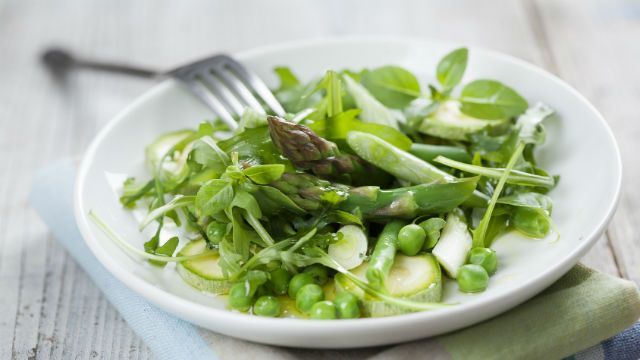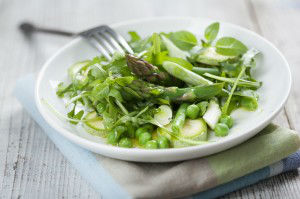
With the pitfalls of the industrial Western diet becoming increasingly researched, many people are turning to plant-based diets as an alternative.
Dining on a variety of plant-based foods is a great choice for health, as the antioxidants and other nutrients they provide can keep you in the healthiest state possible, and often aid in weight loss.
Some people choose to eliminate meat from their diets entirely, for reasons of animal compassion, health or other personal guidelines, while others add some animal products to a mostly-plant diet of vegetables, fruits, nuts, seeds, legumes, whole grains and sprouts.
One way to enjoy the power of plants is to simply include many of them in your daily meals. However, some people choose to follow specific guidelines or diets which emphasize plant foods. The following is a look at seven of the most common such diets.
Note: When it comes to grains, we always recommend gluten-free and in fact, the evidence is mounting that grains in general may not be our healthiest choice.
The vegan diet
The ultimate plant-based diet, vegans do not eat anything that is an animal product. Along with meats, this includes eggs and dairy. True vegans also do not use or clothe themselves in materials made from animals, such as wool or leather, and avoid personal care items that have been manufactured with the use of animal testing.
The vegetarian diet
Vegetarians as a rule dine on mostly veggies, fruits, legumes, nuts, seeds and grains, and do not eat meat. Some vegetarians, however, do eat dairy products and eggs (ovo-lacto vegetarians). Others eat dairy but not eggs (lacto vegetarians), and yet others eat eggs but not dairy products (ovo vegetarians).
Many vegetarians that do eat eggs choose free-range, due to the inhumane practices used in conventional egg farming.
The Mediterranean diet
The Mediterranean diet is based on traditional foods and eating habits of countries that surround the Mediterranean Sea, including Spain, Italy and Greece. This diet is typically high in a rich variety of vegetables, incorporates heart-healthy olive oil on a regular basis, and while meat products are consumed, they are not consumed in large quantities – and the animal protein tends to be fish or chicken (white meats).
The Traditional Asian diet
The Traditional Asian diet is a general term for the diverse cuisines enjoyed in Asian countries such as China and Japan. The staples of this diet are rice, fruits and vegetables, and fermented soy products such as tofu and miso. It also includes a large amount of fish, and low amounts of red meat.
The macrobiotic diet
The macrobiotic diet is designed as a sort of antithesis of the modern, processed Western diet. Refined and processed foods are not eaten, and instead the focus is placed on whole grains (some people choose gluten-free grains), vegetables, fruits, beans and nuts, as well as fermented foods and sea vegetables to support a healthy gut environment. Very little meat is consumed.
The anti-Inflammatory diet
The anti-inflammatory diet singles out chronic inflammation as the root of many chronic illnesses, and stresses the consumption of foods that reduce inflammation rather than promote it. Whole foods, including vegetables, fruits, legumes and whole grains (some choose gluten-free) are stressed, and fast foods, processed foods, refined products and sugar-laden items are discouraged.
Eating fish and some dairy products such as natural yogurt is encouraged, while eating meats other than fish is kept to a minimum.
The raw food diet
With a true raw food diet, no foods are eaten that have been heated above 115 degrees Fahrenheit. The theory is that when foods are cooked, much of their natural life-promoting enzymes and plant nutrients are depleted. The diet includes raw vegetables, fruits, nuts, seeds and sometimes grains. Instead of cooking, recipes are often prepared using a dehydrator.
 No meat is eaten in the pure version of this diet. Some people choose to eat the largest percent of their foods raw, and leave room for a minimal percentage of cooked items.
No meat is eaten in the pure version of this diet. Some people choose to eat the largest percent of their foods raw, and leave room for a minimal percentage of cooked items.
So, which diet is best? Well, that depends entirely on you and your individual health needs. Healthy eating is all about variety, with a rainbow of fruits and vegetables, healthy proteins (either from meats or from vegetarian sources) and healthy fats.
If you are interested in exploring any of these diets, it may be time to give a nutritionist a call, or your health professional of choice, to discuss what would work best for you. Keep in mind that for any of these diets, going organic is best, to avoid exposure to potentially dangerous pesticides and GMOs.
-The Alternative Daily
Sources:
http://health.usnews.com/best-diet/best-plant-based-diets?int=a7b209
http://zenhabits.net/plants
http://vegan.org/learn
https://www.vegsoc.org/sslpage.aspx?pid=508
http://oldwayspt.org/programs/mediterranean-foods-alliance/what-mediterranean-diet
http://health.usnews.com/best-diet/traditional-asian-diet
http://www.kushiinstitute.org/what-is-macrobiotics
http://www.drweil.com/drw/u/ART02012/anti-inflammatory-diet
http://www.thealternativedaily.com/who-really-needs-a-gluten-free-diet

